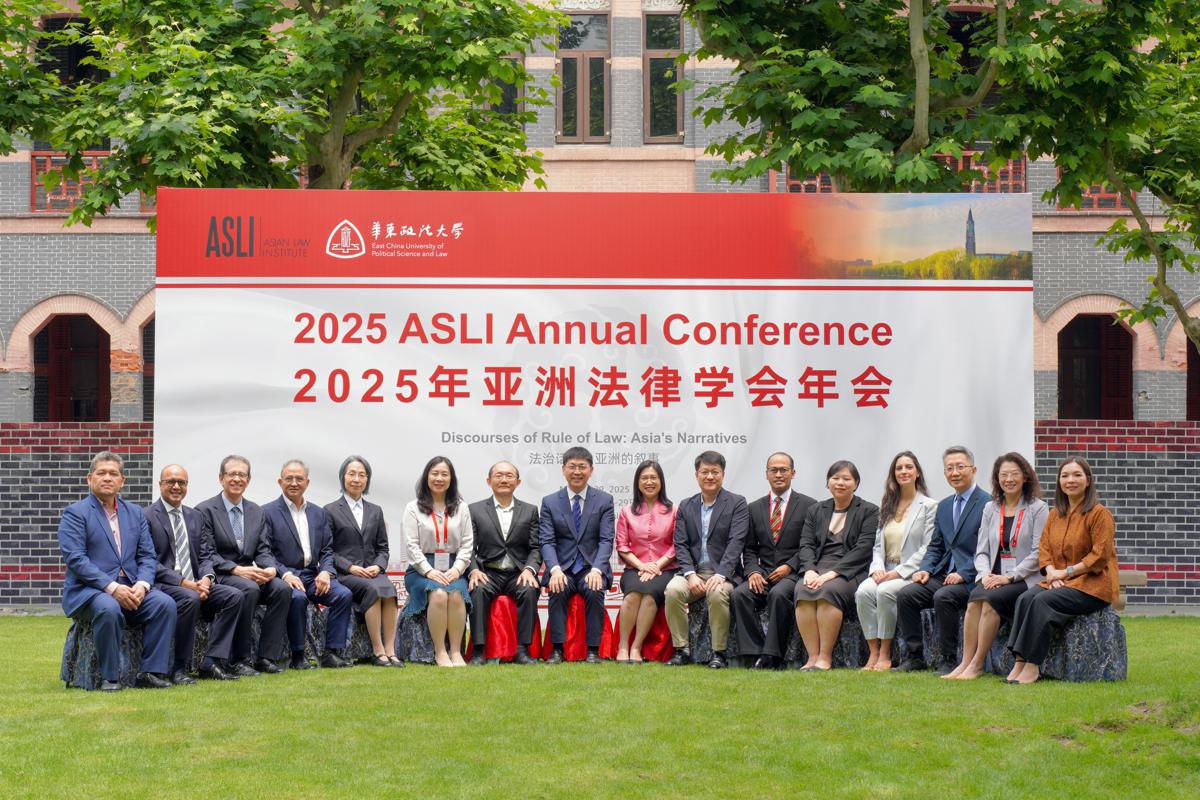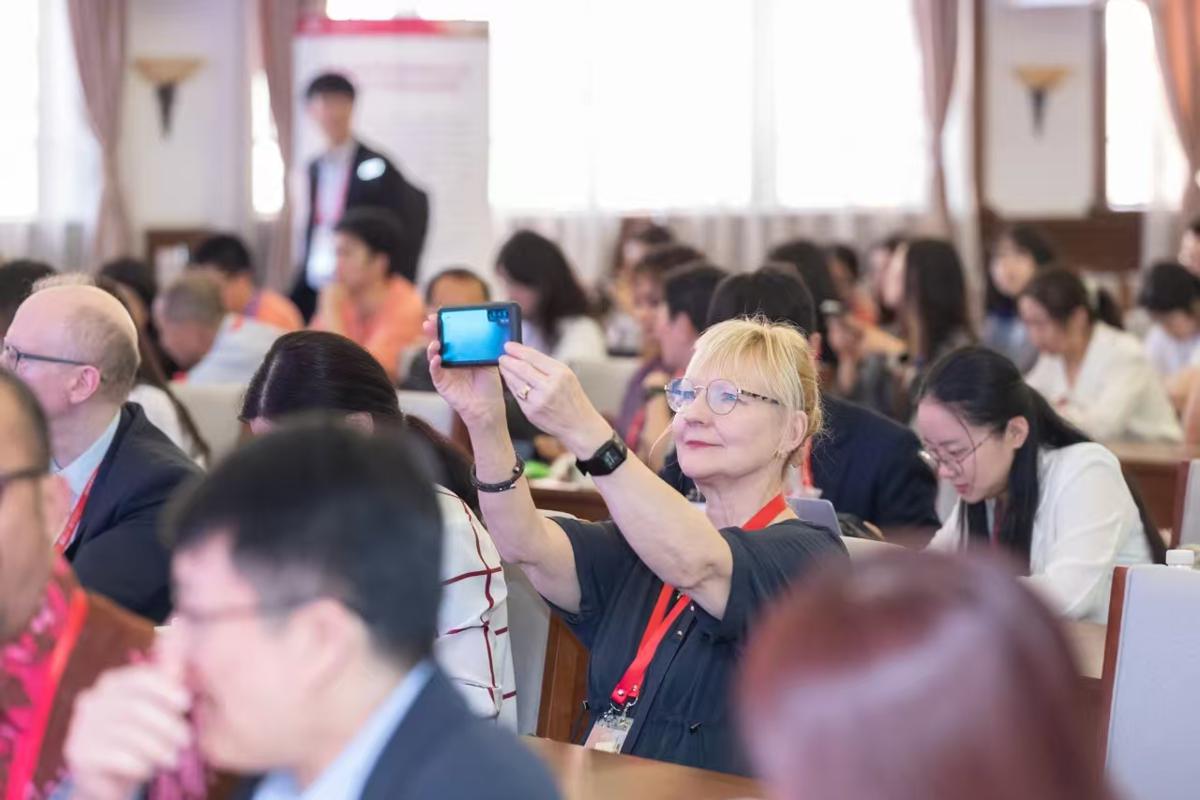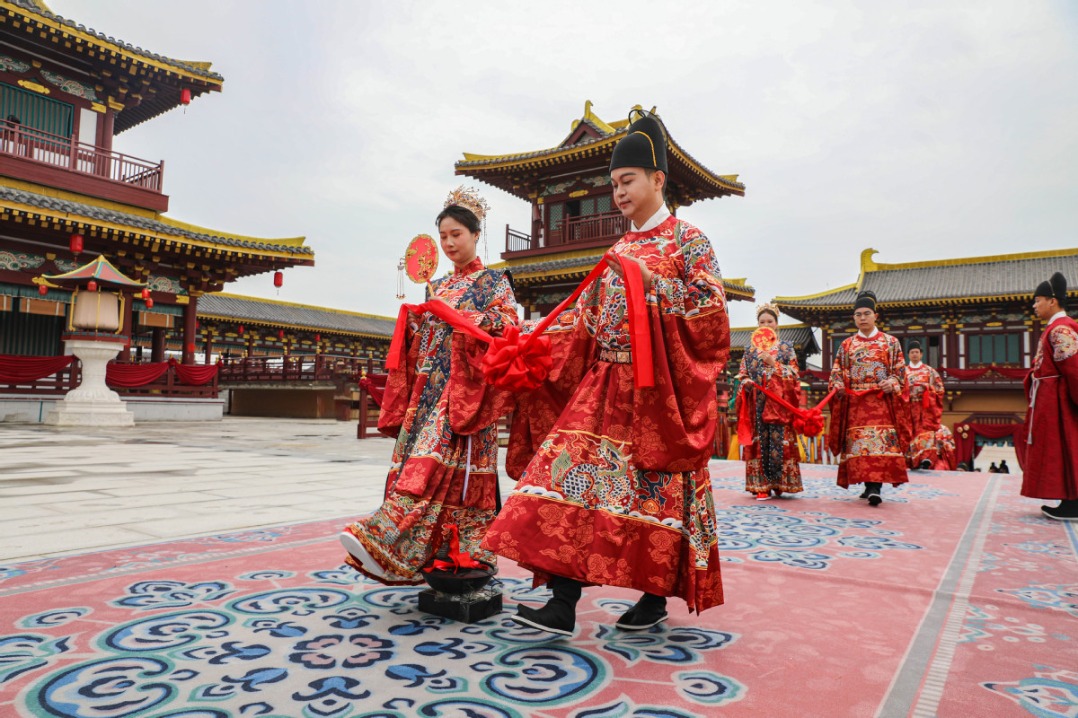Asian lawyers, scholars urged to enhance global exchanges


As Asia gains more prominence in the world, it is increasingly significant for Asian lawyers and law scholars to make their voices heard and promote mutual understanding and exchanges globally, said experts at the 22nd Asian Law Institute Annual Conference in Shanghai.
Hosted by East China University of Political Science and Law (ECUPL), the conference was held from Wednesday to Thursday and gathered over 160 scholars and experts from across Asia, Africa, Europe, North America and Latin America. Themed "Discourses of Rule of Law: Asia's Narratives", it explored diverse topics and sectors such as legislation, social governance, economic development and more.
Chen Yanfeng, deputy director of the Shanghai Municipal Development and Reform Commission, pointed out at the conference that the rule of law is a bond transcending cultural differences and a consensus for development.
"Asia's share of the global economy is expected to rise to about 58 percent by 2030. We need to continuously promote innovation in the rule of law and foster regional and global cooperation," said Zhou Hanmin, chairman of the Shanghai Public Diplomacy Association.
Guo Weilu, chairman of University Affairs Committee at ECUPL, added that at a time when global governance is facing complex challenges, Asian legal practitioners are shouldering an unprecedented historic mission. They need to promote innovation in the rule of law, strengthen cooperation and join hands to address common challenges for a peaceful, prosperous and just world.

The Asian Law Institute, initiated in 2003 by the law schools of 16 Asian universities, dedicated to research on the region's laws and the development of law education and exchanges. Over the past two decades, the institute has been witnessing massive changes and increasing scholar engagement from across the world, according to Kelry Loi, co-director of the institute and professor at National University of Singapore.
"As the Asian economies develop, people are starting to realize the value in learning about Asian perspectives. We see more mutual understanding and mutual exchanges rather than the one-way lecture. That's a profound change that has occurred over the last 20 to 30 years," said Loi, adding that the institute is open to law schools from all over the world who are interested in Asian law.
Loi also noted that China's visa-free policies are helping more global law scholars visit and observe the country, thus helping them understand the place better for future collaboration.
Steven Van Uytsel, a Belgian professor working at Kyushu University, was among participants at the conference. Having lived in Japan for 24 years, he made his first "impressive and enjoyable" visit to Shanghai for the conference and saw "a generation shift".
"A lot of new faces are now appearing in the conference, especially among the presenters. I'm happy to see this kind of generation shift as I think that's important to cultivate the younger generation, give them the floor to voice out and grow. This conference is a good and important platform for exchanges, and I think it should continue," he said.
- Couples celebrate traditional Chinese group wedding in Shandong
- China takes to road on first day of national holiday
- China deploys patrols on water, in air around Huangyan Island
- Macao SAR celebrates National Day with flag-raising, reception
- China to expand its participatory law-making process
- World's largest-capacity centrifuge goes into operation in Hangzhou




































